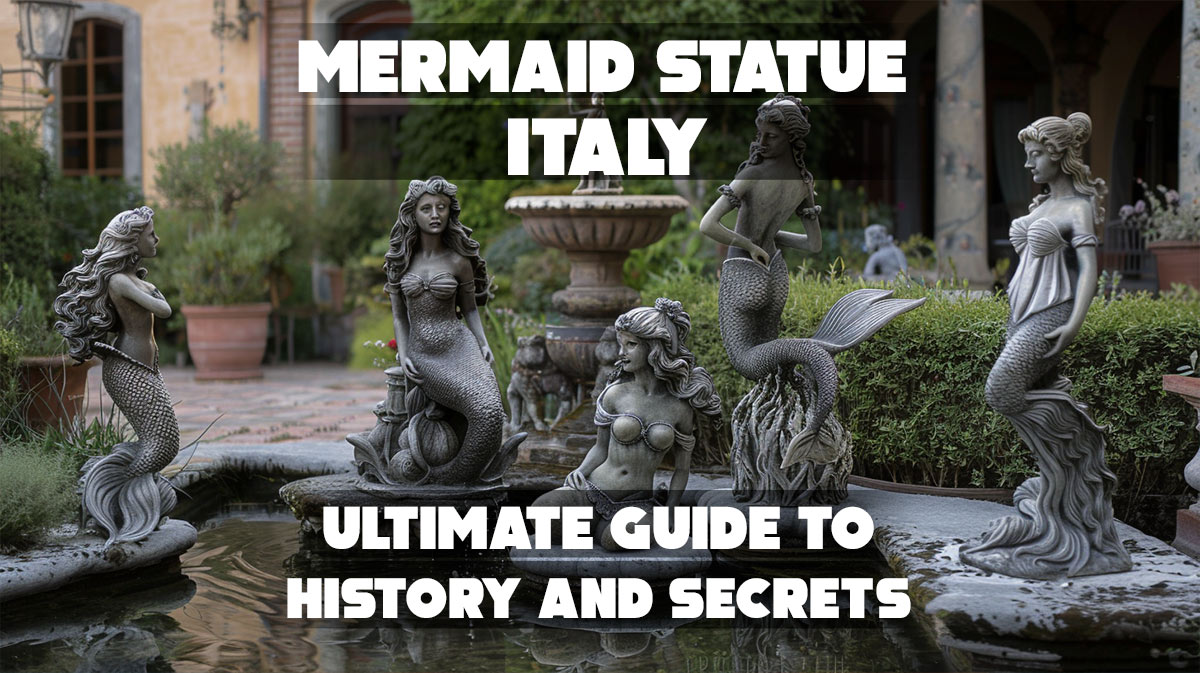What makes these six mermaid statues in Italy spark such fascination—and controversy?
Mermaid Statue Italy offers a fascinating glimpse into Italy’s rich blend of myth, history, and artistry. Many travelers are unaware of how these sculptures reflect local legends, maritime culture, and regional craftsmanship.
If you’ve been searching for unique cultural landmarks beyond the typical tourist spots, this guide from Civilisable is for you. Inside, you’ll find:
- Key locations of famous mermaid statues
- The stories and history behind each piece
- Artistic techniques that bring these figures to life
Continue reading to discover how the mermaid statue in Italy connects communities to their coastal heritage and inspires visitors alike.
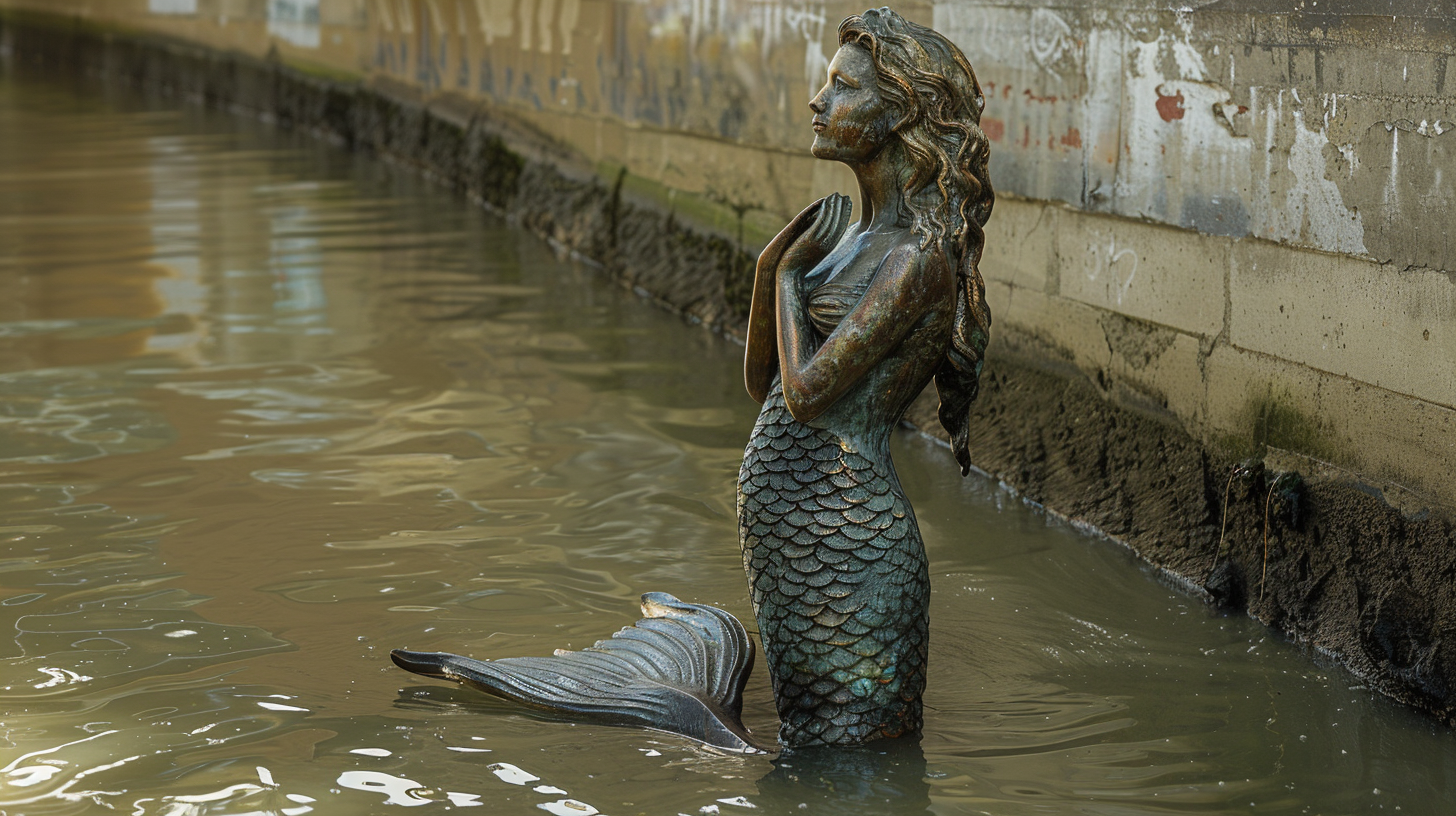
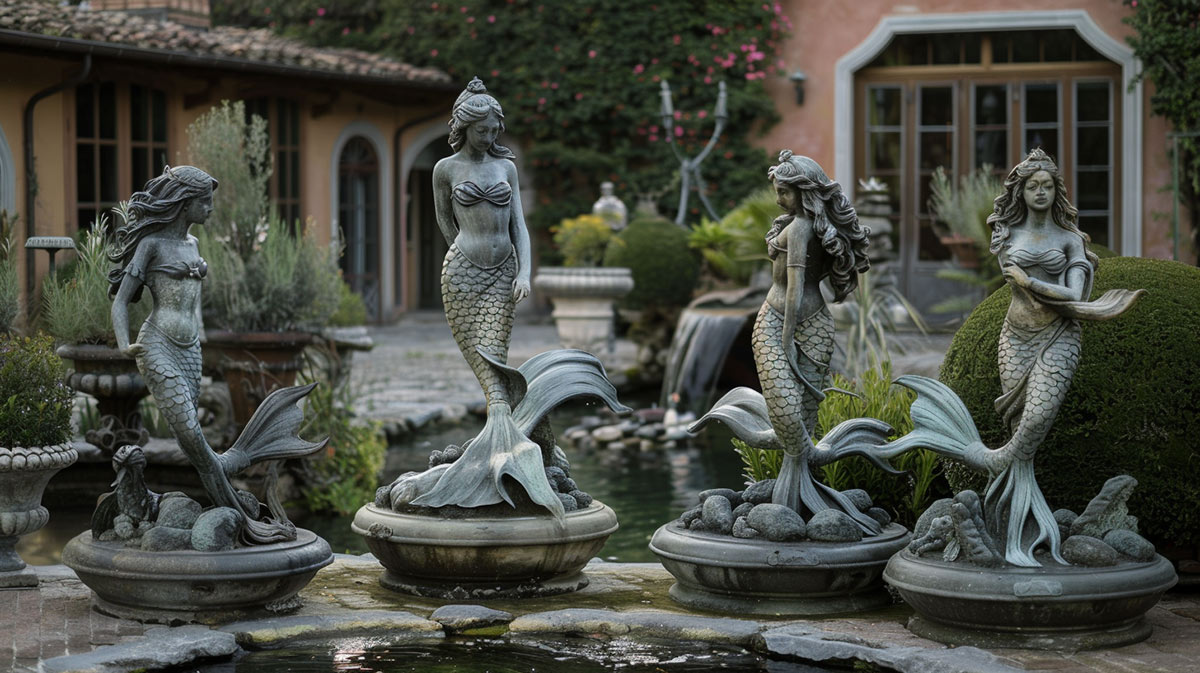
The Mermaid Statues of Italy
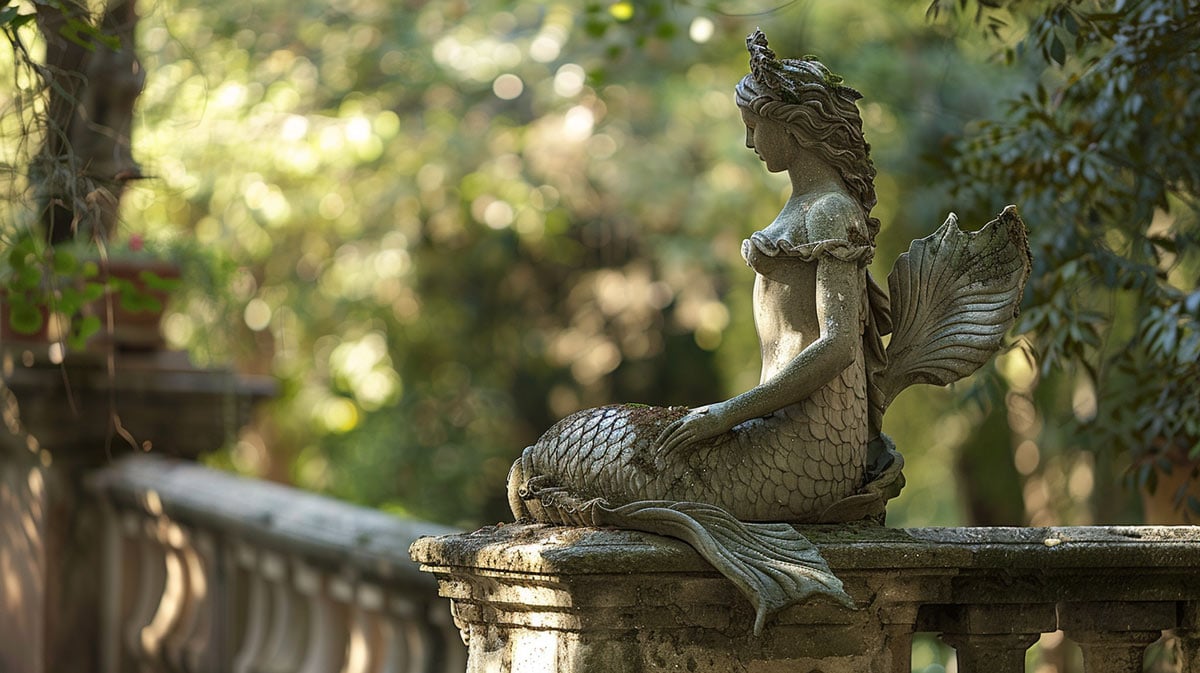
Italy may not be the first country that comes to mind when you think of mermaids, but scattered across its beautiful coastline and towns are several unique mermaid statues that reflect local legends, maritime culture, and artistic charm. Below are some notable examples of mermaid statues in Italy, each with its own story and setting.
See Also Buddha Statues In Malaysia
1. Ponte delle Sirenette – Milan
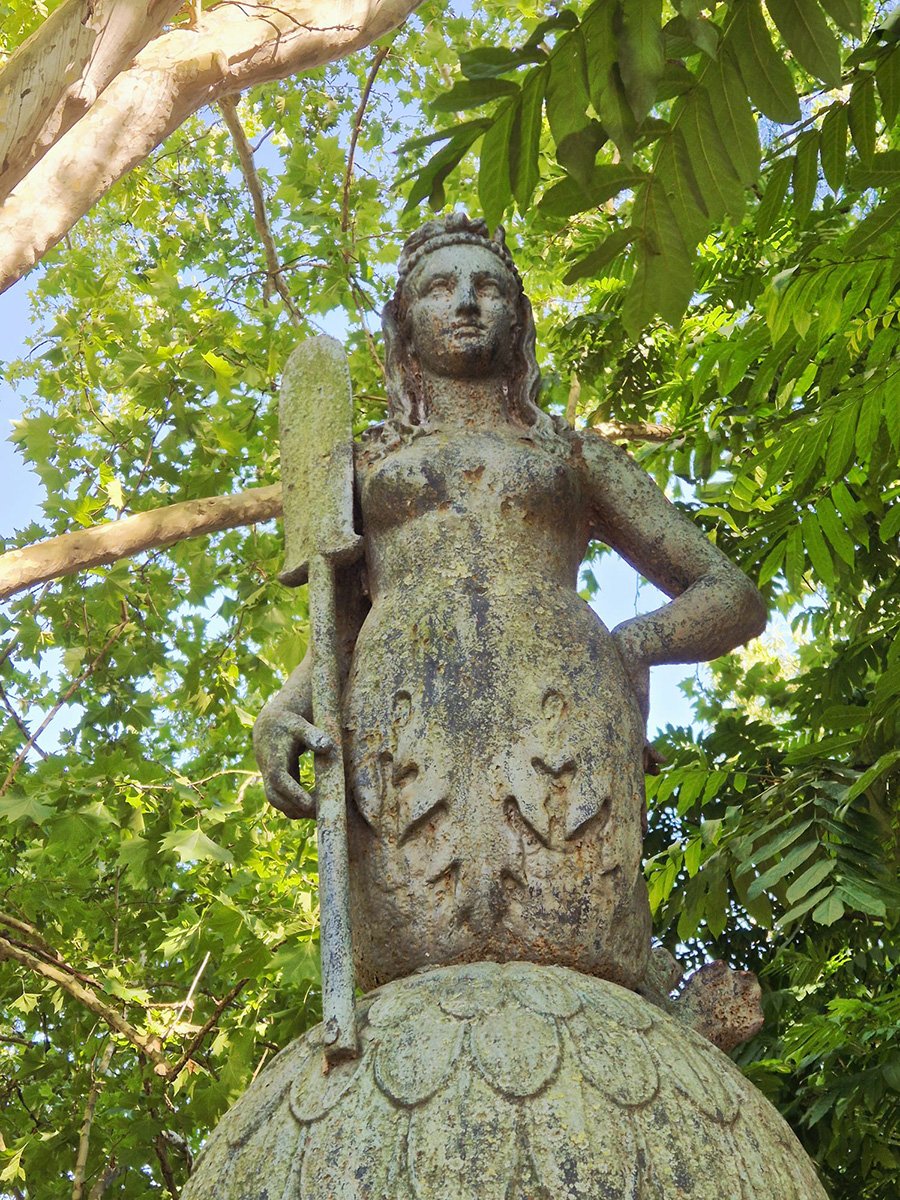
Built in 1842, this small iron bridge originally stood over the Navigli canal in Milan. It features four mermaid statues, each holding an oar. These figures, known as the Sirenette or Ghisini Sisters, were moved to Parco Sempione in 1930. As some of the earliest public mermaid sculptures in Italy, they remain a historic and artistic landmark.
2. Mermaids of Montagnola Park – Bologna
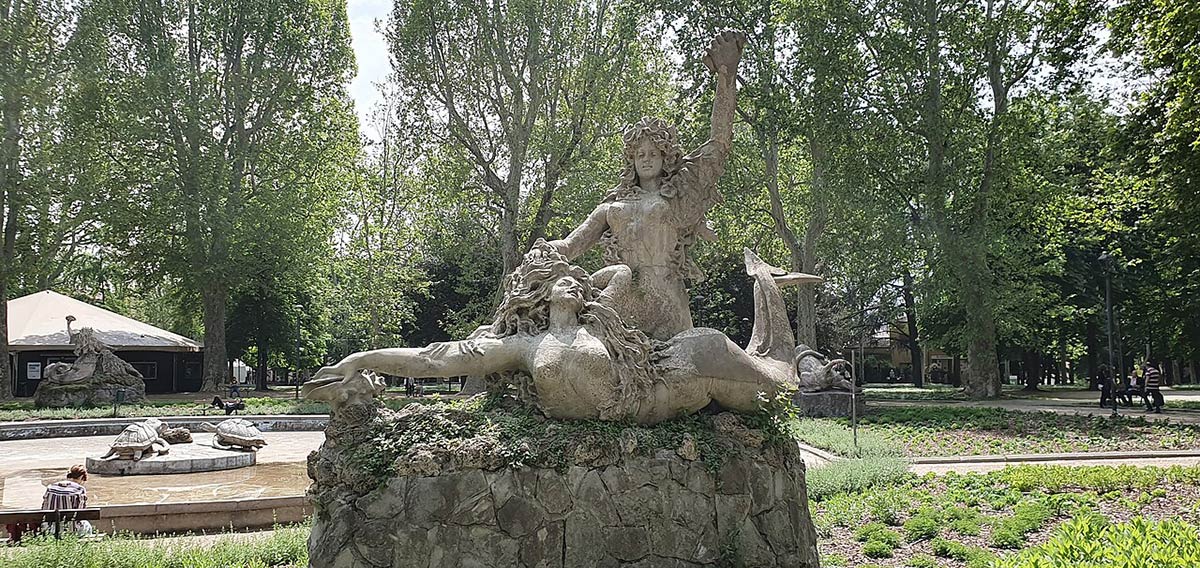
These mermaid sculptures were created in 1888 by sculptor Diego Sarti for a national exhibition in Bologna. The installation includes two separate statues, each depicting a pair of mermaids. Originally part of a temporary display, the statues became permanent due to public appreciation and are now key features of Montagnola Park, Bologna’s oldest public garden.
3. Penelope of Senigallia – Marche
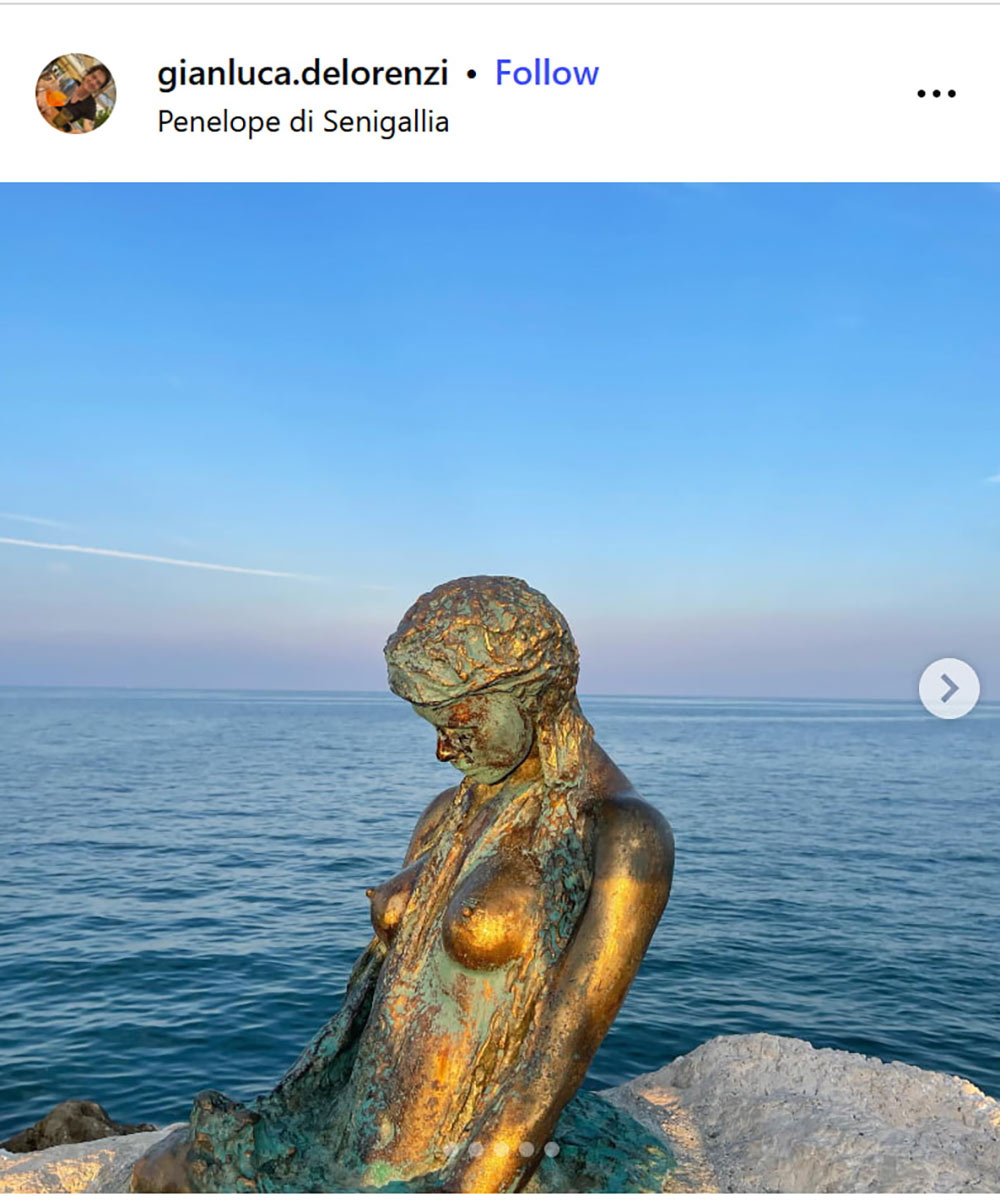
Installed in 2004, this bronze statue by Gianni Guerra sits at the end of the pier in the coastal town of Senigallia. Officially named Penelope, the figure is popularly referred to as the town’s “little mermaid” due to its sea-facing posture and symbolic meaning. The sculpture represents waiting and loyalty, with strong visual ties to the traditional mermaid form.
4. Il Mare (The Sea) – Monopoli
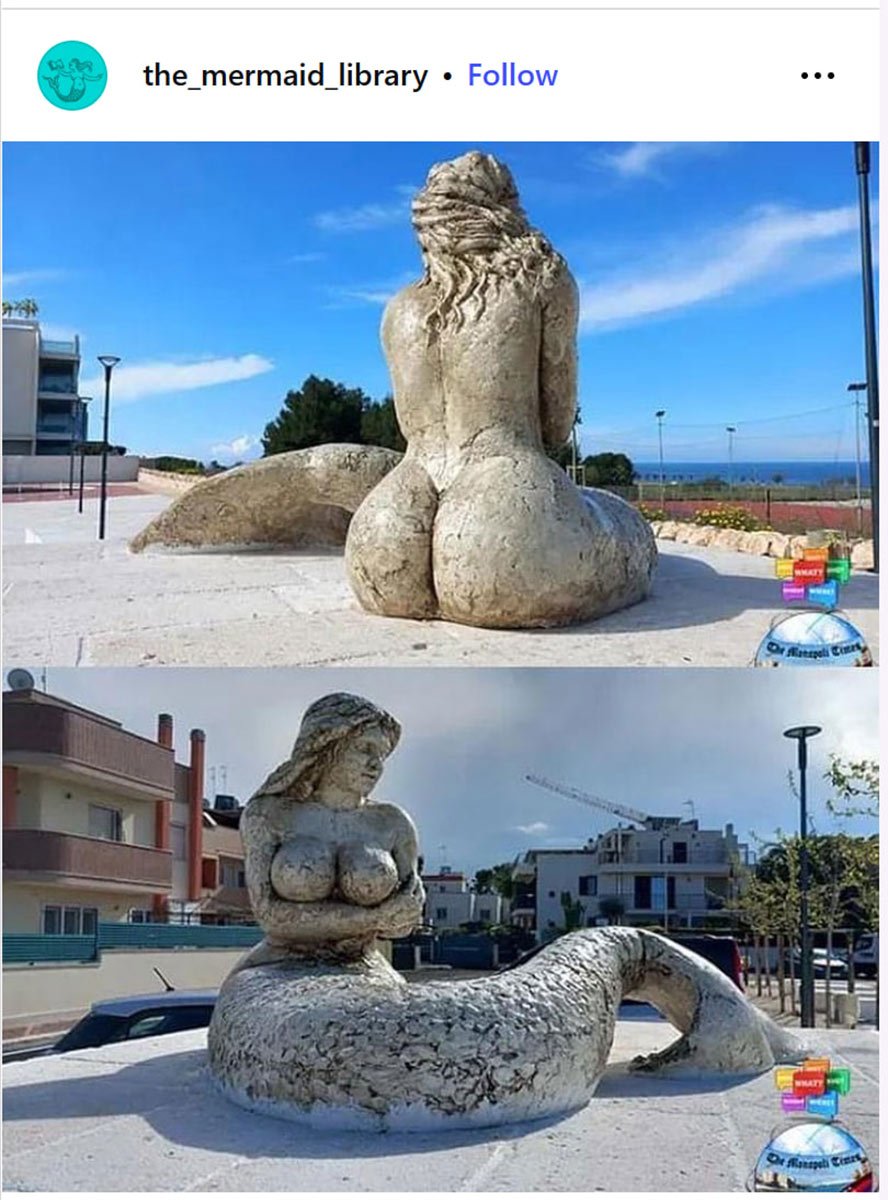
Unveiled in 2023, this modern mermaid sculpture was designed by students from the Luigi Rosso Art School in Monopoli. The statue features a curvaceous, reclining mermaid and sparked public debate for its bold interpretation of the female form. Despite the controversy, Il Mare was explicitly intended to represent a mermaid and has become a talking point in contemporary Italian public art.
5. Sleeping Mermaids (Sirene Dormienti) – Calabria
Created by Vincenzo Baldassarre, this modern sculpture depicts two mermaids from a local legend. One’s hand reaches into a pond, symbolizing their need for refreshment. Located near an ancient millstone in Calabria’s Aspromonte mountains.
6. Mermaid Statue in a Canal – Treviso
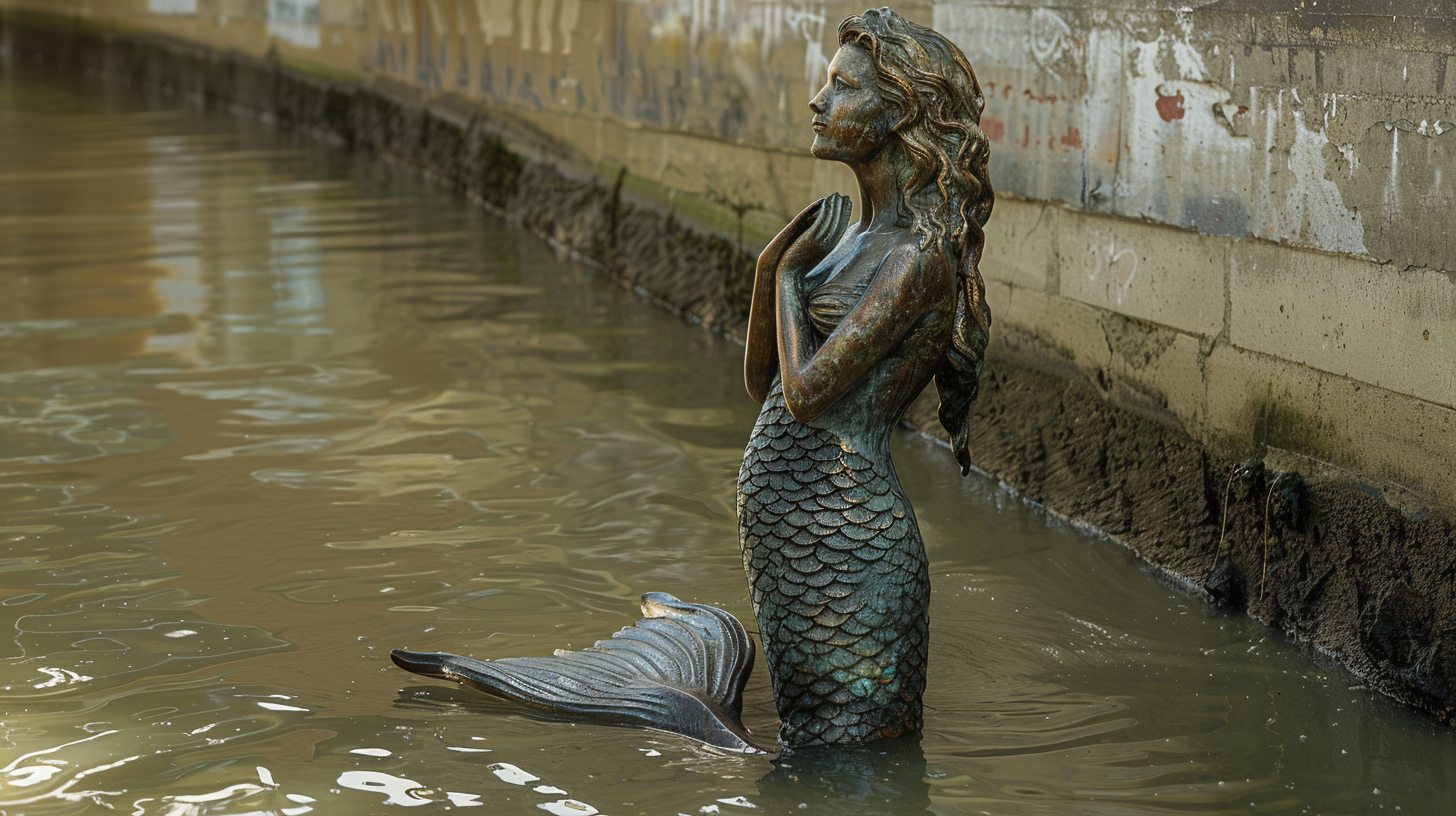
This modern bronze mermaid sculpture is located in the Cagnan Grande canal near the fish market on Isola della Pescheria in Treviso. Emerging partially from the water, it reflects the city’s connection to its canals and fishing heritage. The exact installation date is not publicly documented, but it is believed to be from the early 21st century.
See Also Egyptian God Statues
History and Origin of Mermaid Statues in Italy
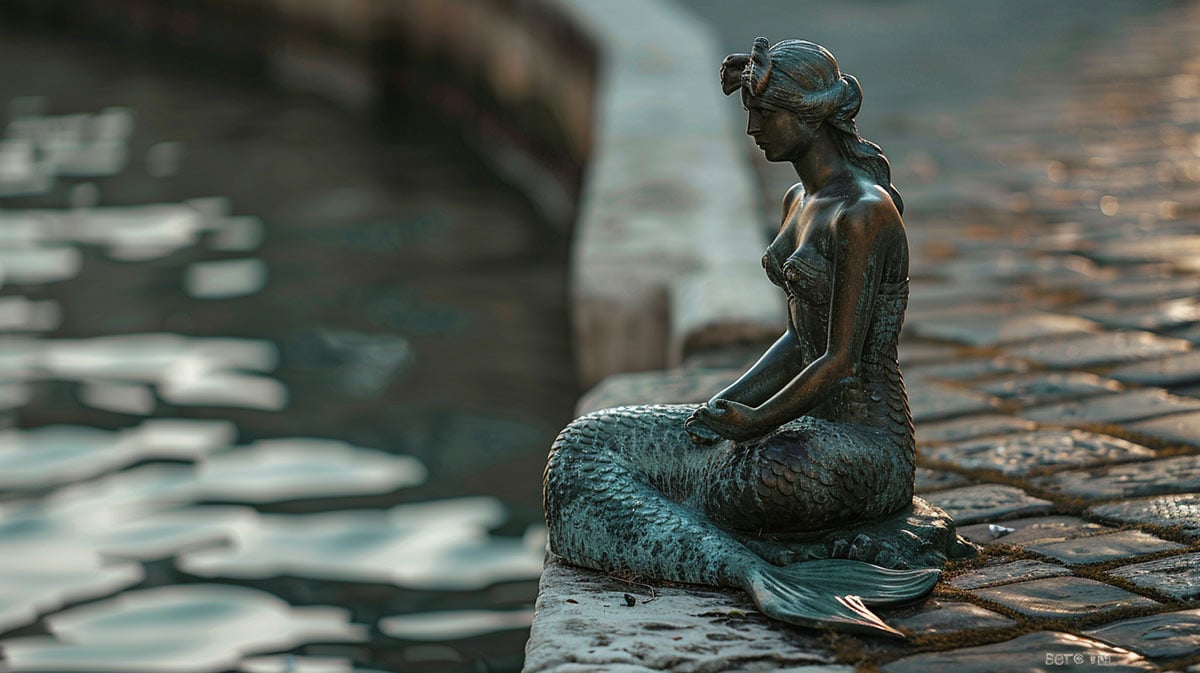
Mermaid statues in Italy have roots in ancient Mediterranean myths but became popular as public art during the 19th century. The rise of romanticism and local folklore inspired artists to create sculptures that celebrated Italy’s close ties to the sea and waterways.
Starting with pieces like Milan’s 1842 Ponte delle Sirenette, Italian mermaid statues evolved to reflect regional stories and modern artistic styles. Today, they blend tradition and innovation, serving as cultural landmarks that highlight Italy’s maritime heritage.
Materials and Artistic Techniques of Mermaid Statues in Italy
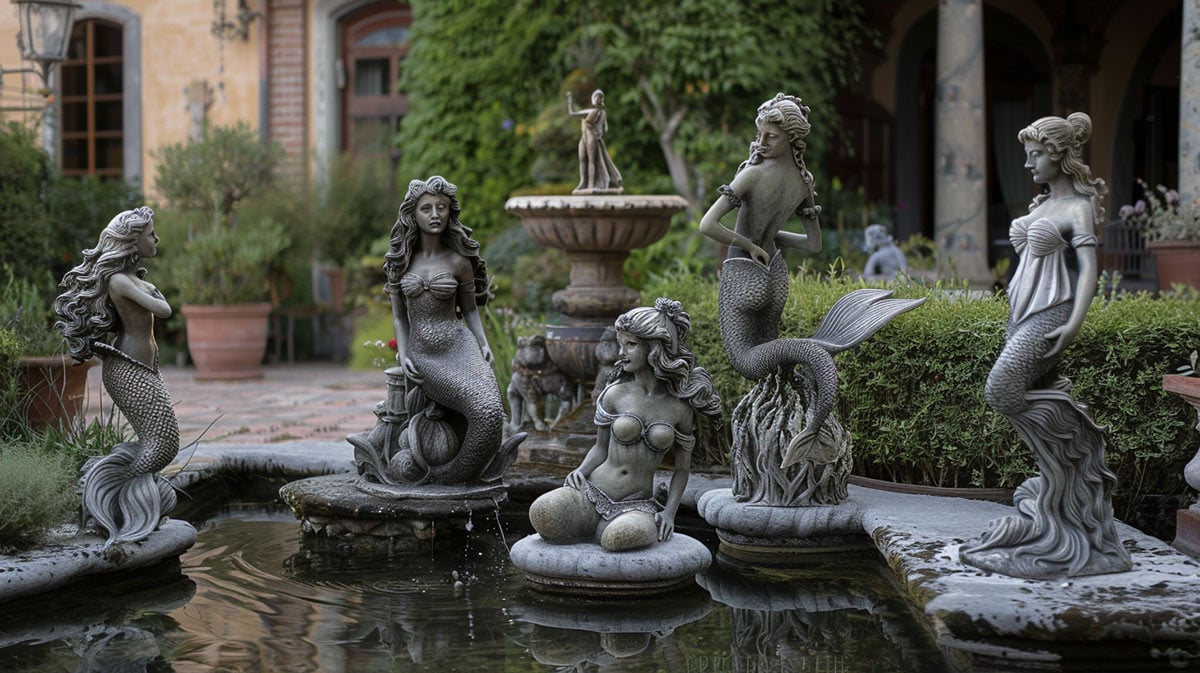
Italian mermaid statues are crafted using a variety of traditional materials such as bronze, iron, and stone. Bronze is favored for its durability and fine detail, while iron statues, like those on Milan’s Ponte delle Sirenette, showcase intricate casting techniques from the 19th century.
Artists often blend realism with mythological elements, using detailed carving and casting methods to capture the fluidity of the mermaid’s form. From classical styles to modern interpretations, Italian sculptors employ both traditional craftsmanship and contemporary approaches to bring these enchanting figures to life.
Cultural Significance and Public Reaction
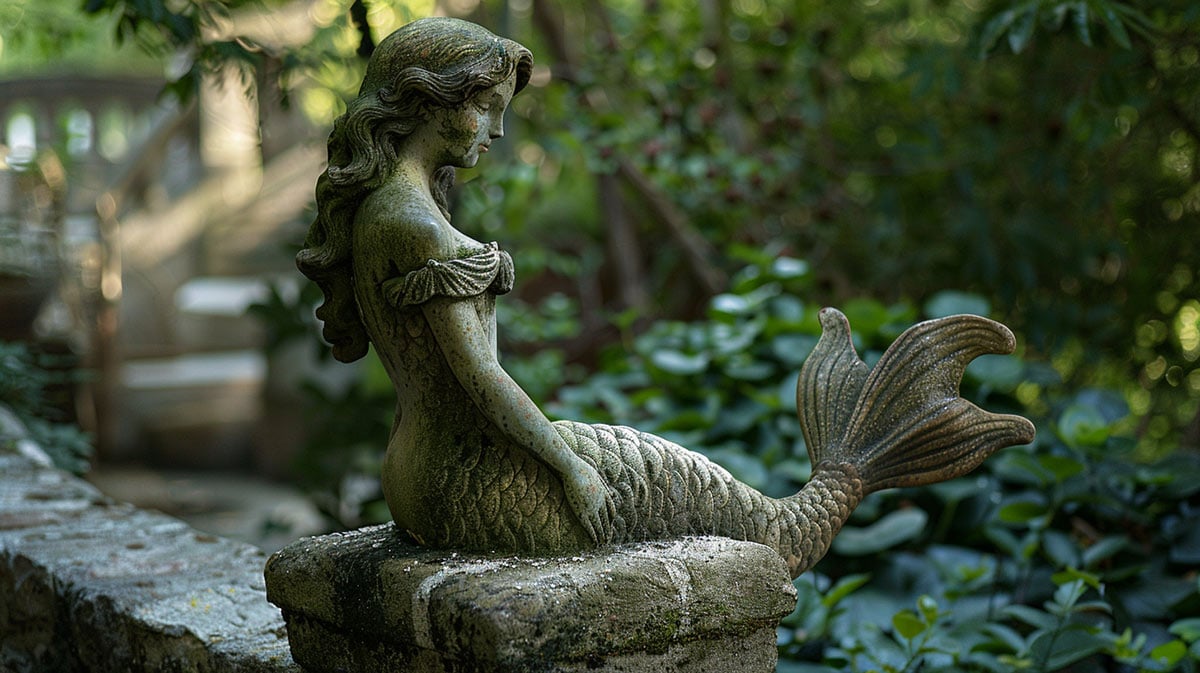
Mermaid statues in Italy are important cultural symbols that connect communities to their maritime heritage and local legends. In towns like Senigallia, the Penelope statue represents themes of loyalty and hope, making it meaningful to both residents and visitors. These sculptures often serve as landmarks that celebrate the relationship between Italians and the sea.
Public response to mermaid statues can be mixed. While many admire their artistic beauty and storytelling, some modern works like Il Mare in Monopoli have sparked debate due to their bold designs. These conversations show how mermaid statues continue to inspire reflection on tradition, art, and cultural identity in Italy.

Mermaid Statue Italy: A Recap
From historic works like the Ponte delle Sirenette in Milan to modern pieces such as Il Mare in Monopoli, mermaid statues in Italy reflect a blend of myth, artistry, and local identity. We explored where to find these sculptures, when they were constructed, what materials and techniques were used, and how each one relates to regional stories or cultural moments.
These statues aren’t just decorations; they preserve artistic traditions, celebrate Italy’s deep connection to water, and continue to spark curiosity and conversation. Exploring these statues is a rewarding experience for art lovers, travelers, and anyone curious about Italy’s lesser-known cultural gems.


